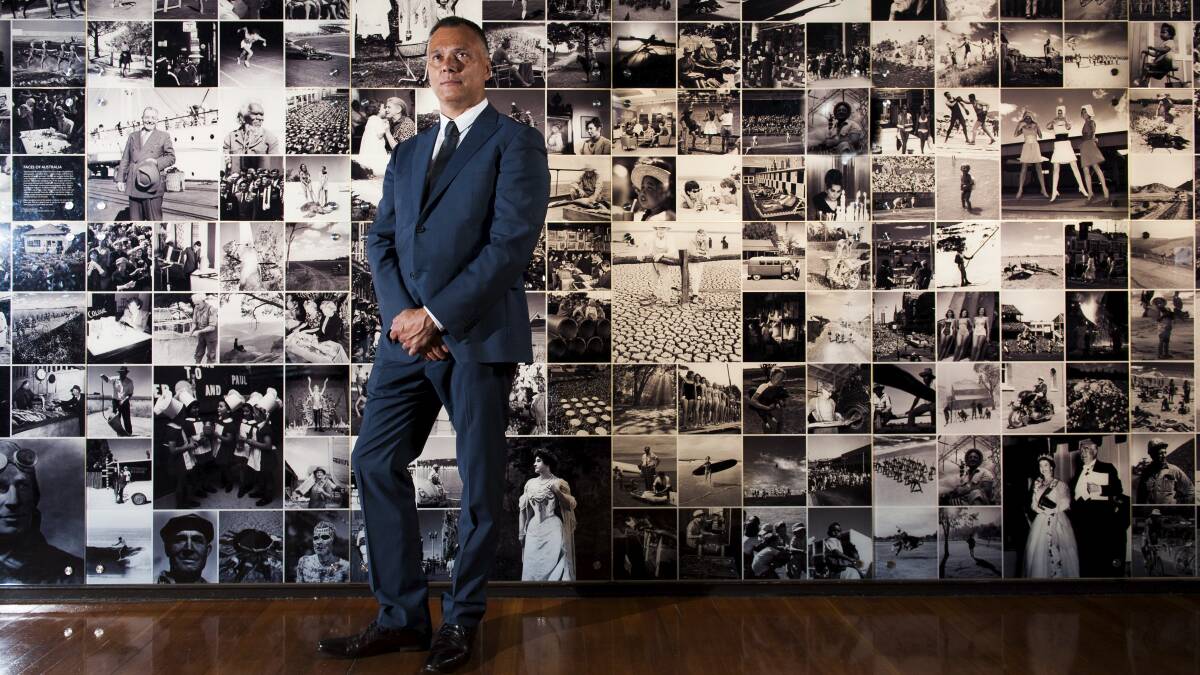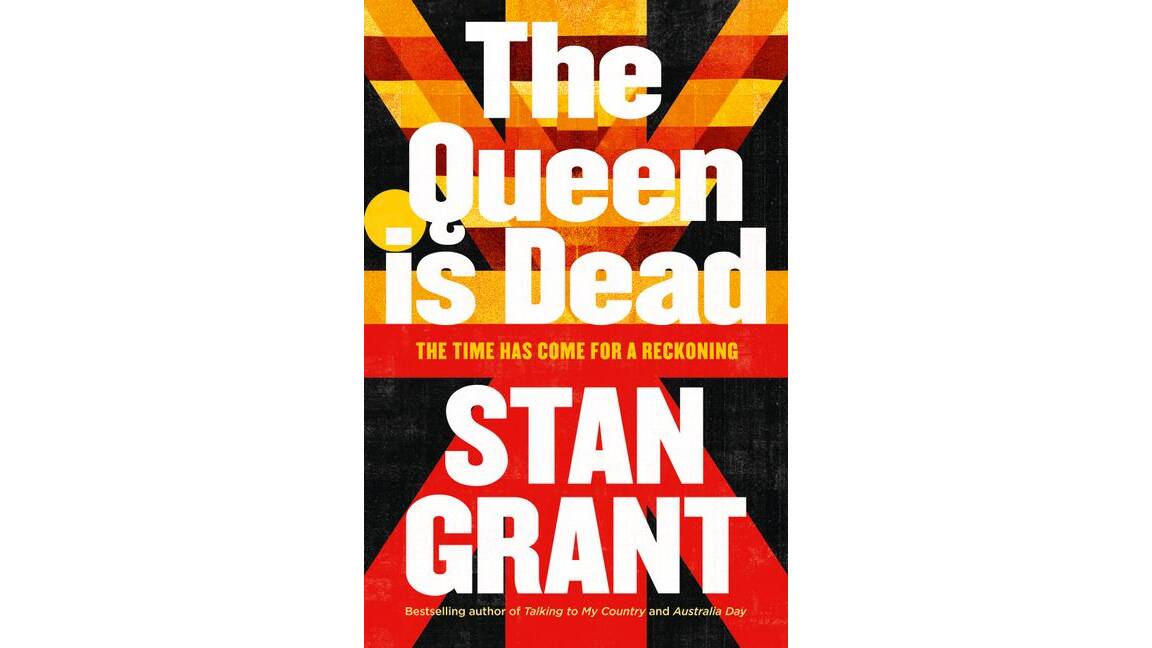
The history of colonisation, says Wiradjuri and Kamilaroi man and journalist Stan Grant, is the history of silencing people and language.
Subscribe now for unlimited access.
or signup to continue reading
"When you stop people speaking, you capture them and you stop them thinking, you stop their ability to think about who they are in the world," Grant said.
"It's an insidious thing and it works in two ways. It not only stops us speaking as we are, but it stops people hearing even when we speak English. We become an echo.
"And I think for so many of our people, white people hear us as an echo. Even when we speak, they hear themselves; they don't hear us."
Grant said language can hide the truth.
"We find it's much easier to speak of settlement in Australia and not invasion. We find it so much easier to use the words like dispossession rather than theft," he said.
"We don't talk about genocide when that is what occurred here and continues to play out in people's lives; when Wiradjuri people, my people, there was a systematic effort in law to erase us from the earth."
Grant said challenging language and getting to speak back was critical.
On Friday, Grant announced he would step away from hosting Q+A, the ABC's weekly panel program, citing a barrage of racist abuse.
"I don't take time out because of racism - I won't give racists the satisfaction. I don't take time out because I believe the ABC was wrong to discuss the legacy of colonisation and empire on the day of the coronation. We did that, I believe, with maturity and respect," Grant wrote in a column published by the broadcaster.
Grant also wrote: "I am writing this because no one at the ABC - whose producers invited me onto their coronation coverage as a guest - has uttered one word of public support. Not one ABC executive has publicly refuted the lies written or spoken about me. I don't hold any individual responsible; this is an institutional failure."
ABC news director Justin Stevens on Friday condemned "abhorrent and unacceptable" racist abuse directed at Grant.
"Any complaints, criticism - or vitriol - regarding the coverage should be directed to me, not to him," Stevens said.
Grant spoke to the Sunday Canberra Times before announcing his leave from the ABC, about his new book, The Queen Is Dead (4th Estate, $34.99).

Grant is scheduled to appear at a booked-out ANU/Canberra Times Meet The Author event on Tuesday.
"We were silenced after the death of the Queen. It wasn't even tiptoeing around the edges. We were told this is not the time, it is not appropriate. What better time is there?" he said.
"I tell you what's not appropriate: stealing someone else's country and consigning people to generations of unending suffering. That's what's not appropriate.
"And yet we were told at the death of the Queen that now is not the time and I had to find a way through that."
Grant argues in the book for the end of the monarchy in Australia and for a reckoning with white institutions that disempower, abuse and vilify First Nations people.
The ABC is a racist organisation, "a lonely, tiring and maddening place to be" where coverage of the Queen's death "could have invited a reckoning with history, but instead we erased it", he writes.
Grant writes of refusing a request to host coverage on ABC television after the Queen's death was announced and watching white presenters betray Indigenous people by failing to acknowledge the truth of the event.
Grant said the response to the ABC's coronation coverage, in which he appeared on a panel that discussed the experience of Indigenous people at the hands of the Crown, had not changed a sentiment expressed in his book that Australia is ready for a conversation about its history.
The ABC had avoided that discussion, Grant writes in the book, but his piece about his family's experience of the monarchy had become the most-read piece of the broadcaster's coverage.
"It just reminds me of the struggle that we have. These people, I feel sorry that they are so poisoned, that these people cannot see themselves in us, that cannot hear in our history the echo of themselves," he said.
Grant said what had been written about the program included lies and distortions and was "utterly outrageous".
"When I dared to speak truth, people have turned that into something so hateful and vicious and they've done it deliberately, and they've done it to unleash a foul racial attack on me and my family: an unending racial attack day after day after day, and yet still we will not give up our love," he said.
"I will not allow those people to poison me in the way that they are poisoned and I feel sorry for them."
Grant said that night he used words of love, speaking of the dream of an Australia not yet found.
"I spoke of my family's personal sacrifice for that dream of my grandfather who fought in a war for this country because he loved it, even when it didn't love him," he said.
"Of my grandfather, a Wiradjuri man, a man of language and culture, a man who kept by his bed the Bible and the works of William Shakespeare. This is not a man who hated the West or white people.
"I don't come from a family of hate."
Grant writes in The Queen Is Dead of the importance of love, of respect; of there being no love without God.
"I think [white people are] not only surprised [when I talk of love], I think they're often resentful. I think people find our love the hardest thing of all. I think people can deal with hate. Evil is so attractive to people. Hatred is so much easier to relate to and love and goodness are something that we struggle with," he said.
"And I think that, for me, comes out of our yindyamarra, our respect. We are a people of deep love, the love of our country, the love of our families, the love of our culture.
"And I'm not going to sacrifice that love for anyone."
Looking for more reads and recommendations? Browse our books write-ups and reviews.


